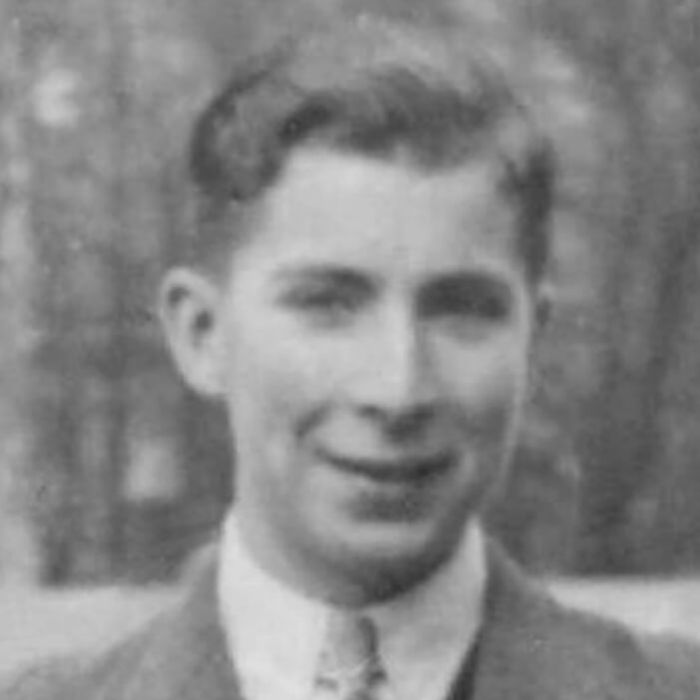Dirk Koedoot was born on February 8, 1925 in Ijsselmonde (today Barendrecht) in the Netherlands. Soon after his birth, his family of 12 moved to Rotterdam. Dirk had always dreamed of becoming a sailor, but his father, Jilles Koedoot – a pious man – was against it: “You want to be a sailor and think you’ll be able to stay religious at sea? No, Dirk, that won’t work.” So Dirk Koedoot became a baker. Just after Dirk Koedoot turned 18, the Rotterdam labor office sent him to Germany on a work assignment. He arrived in Munich on February 20, 1943 and became one of about 2,600 Dutch women and men conscripted into forced labor in that city during the Second World War. Dirk Koedoot started out in a bakery under relatively good conditions. He was able to move about freely and probably lived with the bakery owners. Still, he could not bear life as a forced laborer. He escaped but was captured by German soldiers near the border with the Netherlands and brought back to Munich. Dirk Koedoot was sent to the Arbeitserziehungslager (work education camp) München-Moosach in Wildstraße (today Bingener Straße/Triebstraße). Similar to a concentration camp, the work camp was surrounded by barbed wire and guarded by SS men. Its approximately 500 inmates had to wear prison uniforms and perform the heaviest hard labor. When Dirk Koedoot tried to escape, he was caught and forced to stand in cold water for 24 hours as punishment. Seriously ill, he was admitted to a hospital on Maria-Ward-Straße 9. He died of a lung hemorrhage on October 20, 1943, probably due to the violence and torture to which he had been subjected. Dirk Koedoot was buried on October 23, 1943 in the Westfriedhof cemetery in Munich. On May 24, 1956 his remains were moved to the Waldfriedhof Oberrad, a cemetery in Frankfurt am Main. In the Dutch Ehrenfeld (field of honor) more than 750 other Dutch boys and men – all of them forced to work in Germany during the Second World War – were laid to rest. (text Dirk Koedoot, editor C. Fritsche, translation T. Axelrod)




